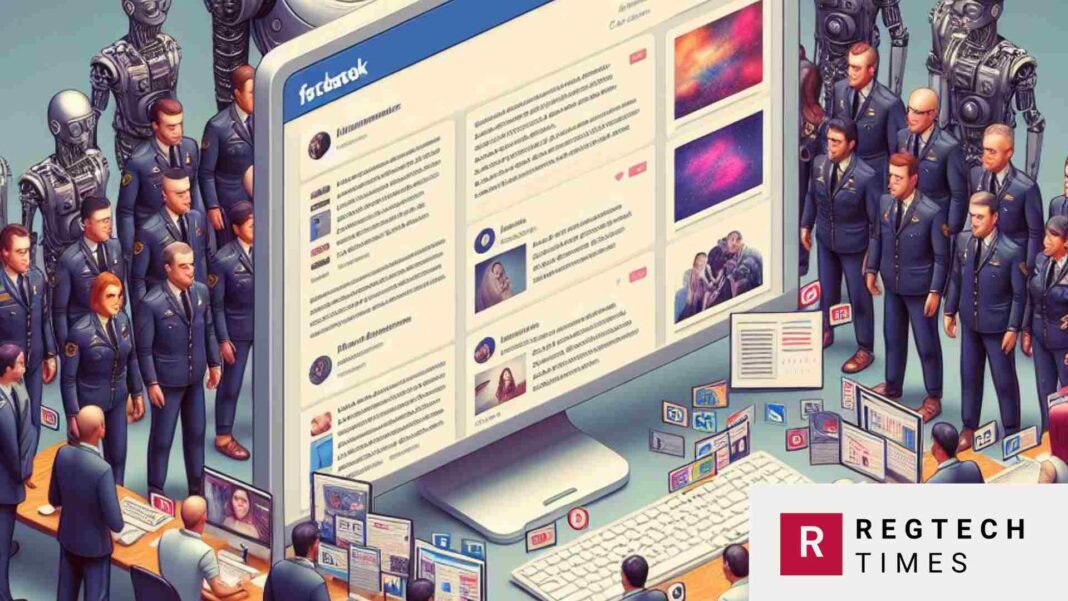Meta’s Oversight Board is currently scrutinizing AI-generated explicit content on Meta’s Facebook and Instagram platforms. The board, despite being funded by Meta, operates independently and is taking a proactive stance on these issues to address broader implications of digital consent and privacy.
The investigation follows concerns raised by two AI-generated sexually explicit images of female celebrities on Facebook and Instagram. These images have sparked discussions about the misuse of AI technology to create pornographic content. The Oversight Board is evaluating Meta’s policies and response strategies regarding such content.
One of the cases under review involves an
AI-generated image posted on Instagram resembling a clothless woman who is a well-known public figure from India. This image was part of an account dedicated to AI-generated representations of Indian women. The other image, found in a Facebook group dedicated to AI creations, depicted a clothless woman resembling an American public figure being inappropriately touched by a man.
The rise of deepfake technology, which allows for the creation of highly realistic fake images and videos, has exacerbated the issue. Most victims of deepfakes are women and girls. The incident involving US pop star Taylor Swift, where searches for her images were temporarily blocked on a social media platform owned by Elon Musk due to fake explicit content, further highlights this trend.
Deepfake Technology
Deepfake technology has advanced significantly, enabling the creation of highly realistic images and videos that can be exploited to harass individuals. The UK’s recent decision to criminalize the
production of such content sends a strong message that such actions are both unethical and unlawful. This move is part of the government’s ongoing efforts to enhance protections for women against physical, emotional, and online abuse. It builds upon earlier provisions in the Online Safety Act, which already criminalized the sharing of ‘deepfake’ intimate images. By amending the Criminal Justice Bill, the UK is setting a standard for other countries to follow in addressing this evolving form of abuse.
Oversight Board
An oversight board is a group or committee responsible for overseeing a particular activity or area of governance. In the context of corporations or organizations, an oversight board typically functions as an independent body that monitors the actions and decisions of the organization’s management to ensure they are in line with the organization’s goals and values.
In the case of social media platforms like Meta’s Facebook and Instagram, the oversight board is an independent body established to review and make decisions on content moderation issues, particularly regarding challenging or controversial cases. The board operates autonomously from the company and is tasked with ensuring that content moderation decisions align with the platform’s policies and principles.
Meta’s initial response to these incidents varied. While the image of the American celebrity was removed for breaching bullying and harassment policies, the image of the Indian public figure was initially allowed to remain online, only being taken down after the Oversight Board intervened.
In response to these challenges, Meta has expressed its commitment to enforcing and potentially revising its regulations based on the Oversight Board’s recommendations. However, this ongoing issue underscores the need for potential legislative action to better regulate AI-generated content and prevent the creation and distribution of harmful “deepfakes.”
UK Passed the Law to Criminalise Deepfake
The United Kingdom has taken a significant step in the fight against digital abuse by introducing new legislation that criminalises the creation of sexually explicit deepfake images. This move is part of a broader effort to protect individuals, particularly women, from online and emotional abuse.
Under the new law, anyone found guilty of creating deepfakes with the intent to cause distress can face prosecution and an unlimited fine. If the deepfake is then shared, the perpetrator could also face imprisonment. This legislation not only targets those who distribute such content but also those who create it, even if there is no intent to share.



